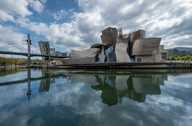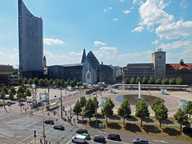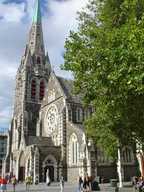Policy interventions and aims
Following several decades of industry-focused territorial strategy the focus of the Basque regional strategy between 2008 and 2018 “…had evolved to competitiveness in solidarity through innovation, leveraging public-private collaboration spaces to facilitate a systemic and participative strategy”.
The strategy aimed to further develop specialisation which was informed by two science, technology, and innovation plans. The 2015 Science, Technology and Innovation Plan (2011) focused on key markets and transversal capabilities to develop existing strengths and complementary capacities. The 2020 Science, Technology and Innovation Plan (2014) outlined a framework for a smart specialisation strategy with three strategic priorities complemented by four niche opportunities, and four transversal areas: internationalisation, skills, new business models, entrepreneurship.
Key aspects of the Basque region's approach:
Investment in digital and HLT infrastructure. Compared to the rest of Spain, the Basque region invested less in physical infrastructure and focused its efforts on digital and industry 4.0 such as two cyber security centres, a digital innovation hub, and several sector specific research centres.
Improvement of skills and a better alignment between the skills system and the smart specialisation strategy. There has been an increased recognition by Basque universities of their role within local economic development, for example the 4GuneCluster. The vocational training system has continued to develop with a focus on addressing small business needs and challenge-based learning through collaborations between educators and business.
Rising consciousness of weaknesses in non-technological innovation alongside a reorganisation of the Basque Science, Technology, and Innovation Network. The Basque government recognised a need to develop non-technological innovations to increase productivity and piloted programmes such as one to increase advanced management skills.
Maturing the public sector alongside local institutionalisation. The public sector in the Basque region was consolidated during this time and a series of public/private collaborations processes were successfully developedxi.
Creative and cultural sectoral development. Following the European Commission’s 2010 Green Paper: Unlocking the potential of cultural and creative industries the Basque Government set about doing that. In the coming years, a concerted effort was made to understand the size of the sector and how institutions could help it develop, with the Basque Culture Observatory leading the analysis. In 2014 the Basque Country began leading the Regional Initiative for Culture and Creativity (an informal network of 25 countries) and was one of 6 EU regions to be part of the EU Smart Specialisation Creative Districts/CREADIS3 project. In 2016 San Sebastian, in the Basque Country, was European Capital of Culture, 19 years after the Guggenheim Museum opened in Bilbao.
Tackling health ineqaulites. Health reforms in the Basque Country health “are credited with development of one of the most successful integrated care strategies in Europe”. A key driver of this success is the focus of the Health Policy in the Basque Country 2013–2020 (HPBC) on health, social determinants, and implementation. This places tackling health inequalities at its core, with accompanying quantitative outcome targets.







